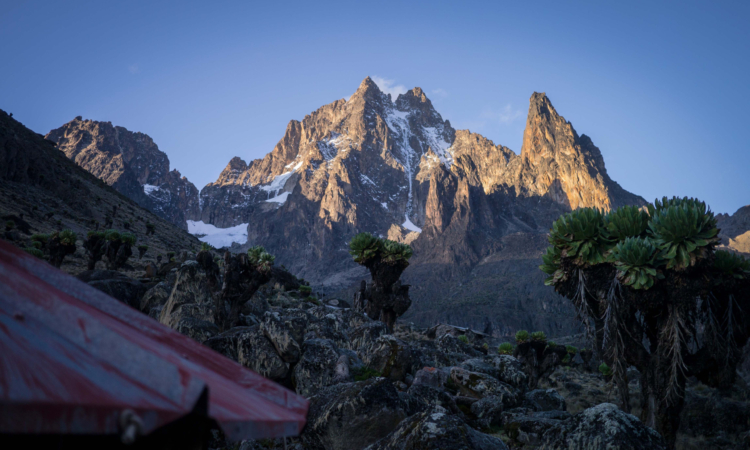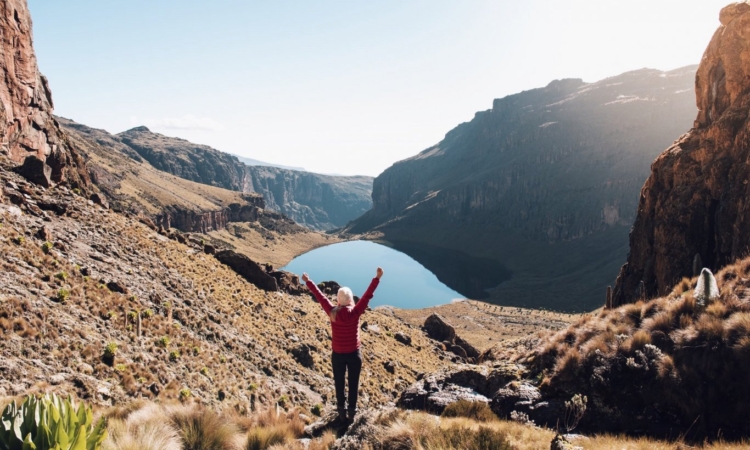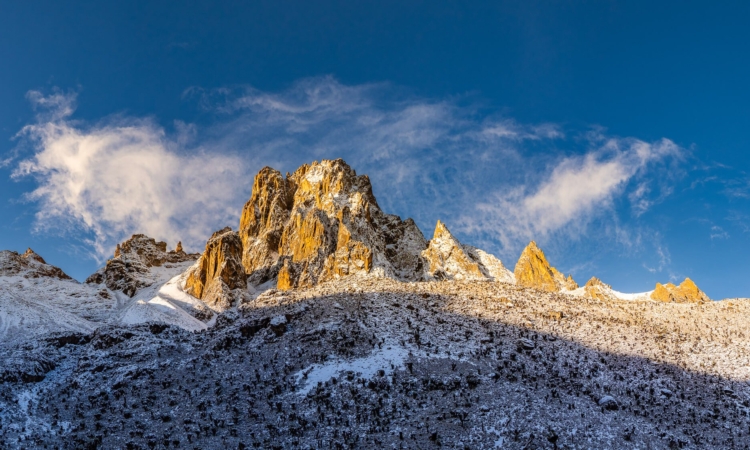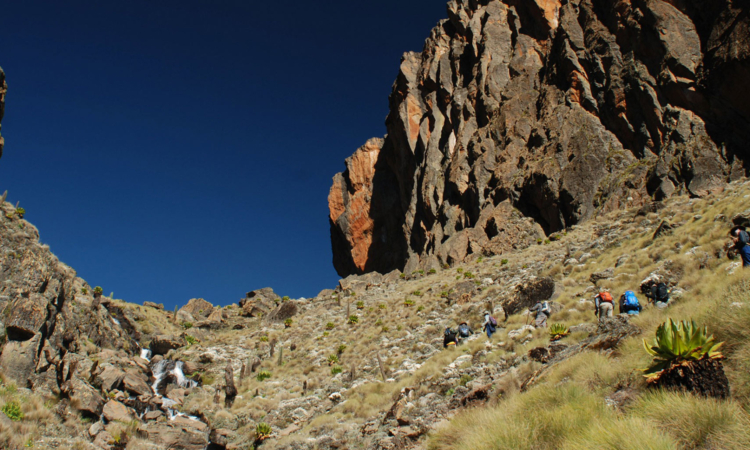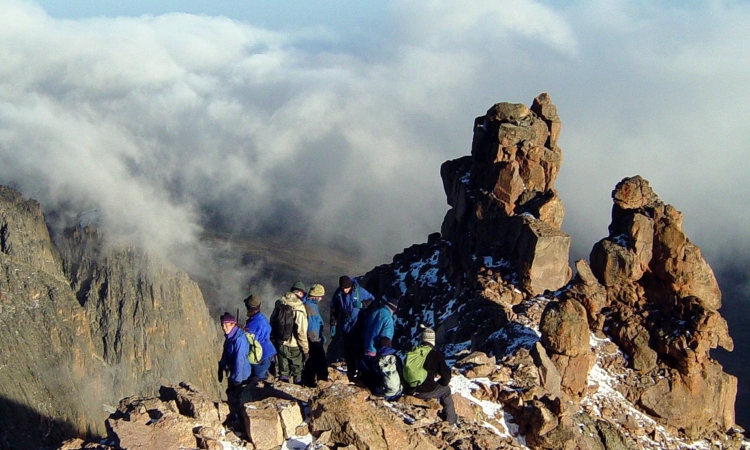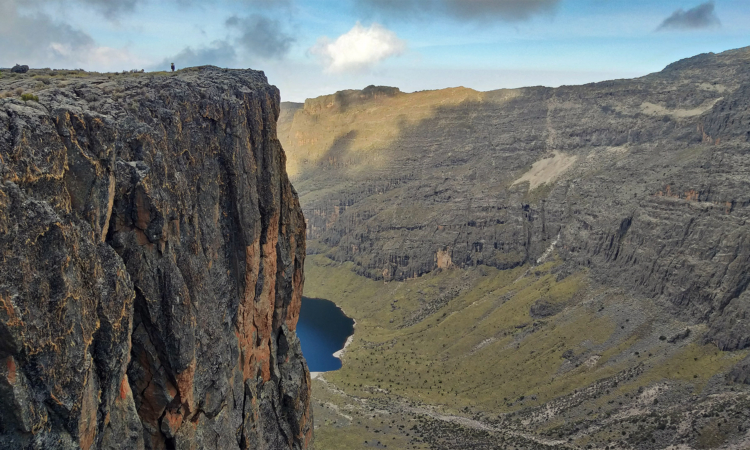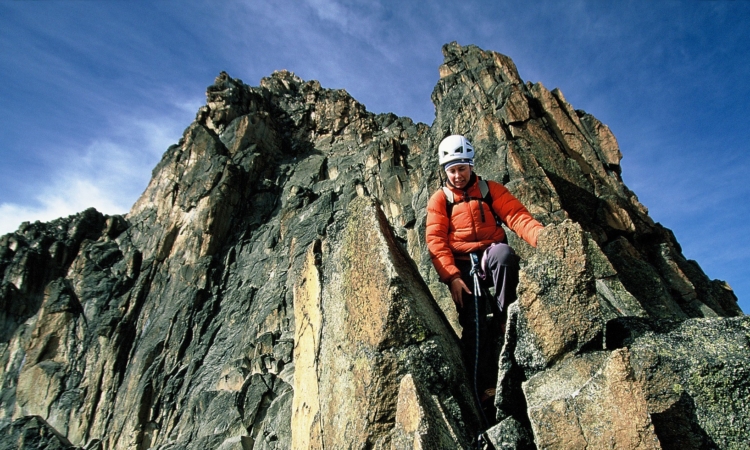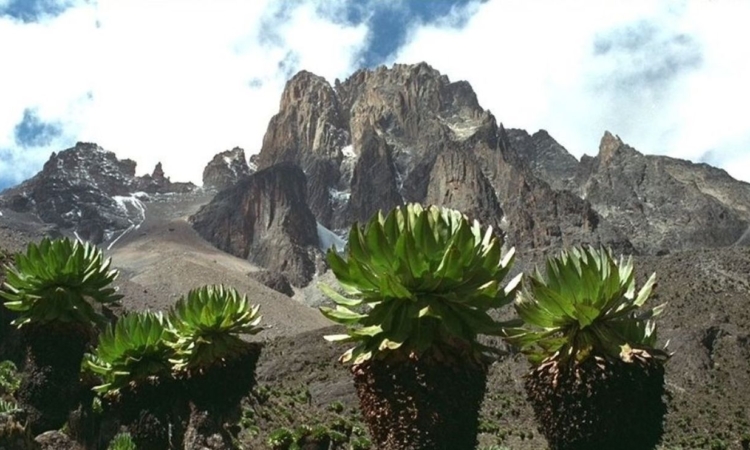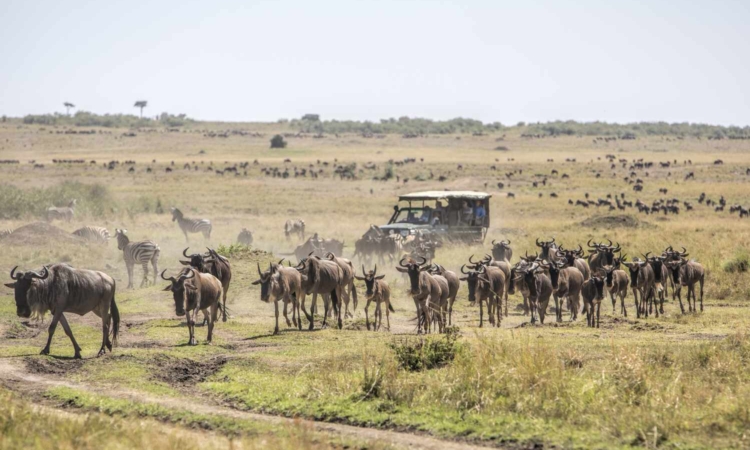Altitude sickness on Mount Kenya which is also called Acute Mountain Sickness (AMS) in its mildest form is a negative health condition that comes about when someone rapidly ascends to higher altitudes without giving their body enough time to adapt to the rapid change in altitude characterized with low oxygen levels with increase in elevation and thin air.
Considering the fact that Mt. Kenya is the second highest mountain in Africa after Mt. Kilimanjaro, altitude sickness is a normal occurrence on the mountain starting from about 2,500 meters.
SIGNS OF ALTITUDE SICKNESS ON MT. KENYA
- Early signs / symptoms;
- Headache
- Nausea
- Fatigue / Weariness
- Sleeplessness
- Dizziness
- Later signs / symptoms;
- Increased headache
- Vomiting
- Shortness of breath
- Insomnia
- Increased fatigue
- Heart palpitations
- Loss of appetite
- Confusion and blurred vision
- Swelling of limbs and the face
All hikers / climbers should aware of the symptoms and signs of mild acute sickness so that the necessary precautions can be taken to avoid situations escalating to the life-threatening forms of altitude sickness like High Altitude Pulmonary Edema (HAPE) and High-Altitude Cerebral Edema (HACE).
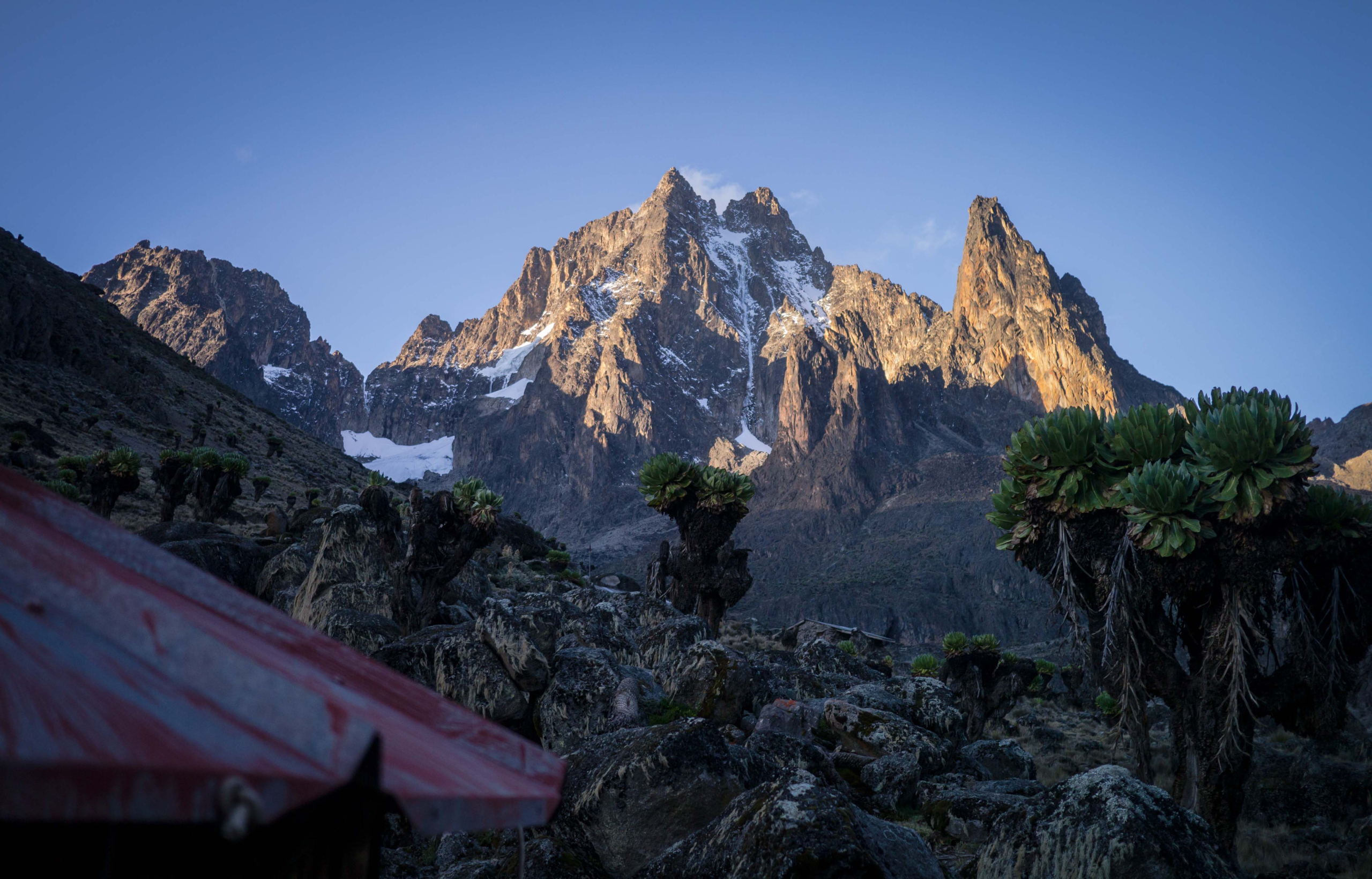
HOW TO REDUCE THE RISKS OF ALTITUDE SICKNESS (ACUTE MOUNTAIN SICKNESS)
Spending a night or two at the base of the mountain or the road-heads is highly recommend for acclimatization purposes.
You should be aware of the symptoms and signs of altitude sickness. Once you notice these signs in yourself or in one of your team members, immediate precaution should be taken.
Drink as much water as you can on a daily like up to 3 liters to stay hydrated as this helps avoid altitude sickness. Keep your water bottle with you and your hydration bladder close by and keep sipping on that water.
Take it slow while on the mountain, summiting to the top is not a race. Go slowly and give your body a chance to adapt to high altitudes and harsh conditions of the mountain.
Take brief rest sessions during the hike and stop, admire your surroundings, Mt. Kenya is a scenic mountain.
Take time to train your mind and body ahead of time before your trip to Mount Kenya. Engage in physical fitness exercises and preparatory hikes.
Maintain a balanced diet before and during your Mt. Kenya hike. Have snacks at hand to much on as you climb to help boost your body energy levels.
Book your trips with recognized tour operators with experienced and trained guides that know the mountain well and can respond to emergencies with utmost professionalism and quick response.
First and foremost, being aware of the symptoms of altitude sickness and taking precaution like taking it up on yourself to descend to a lower altitude if you feel really bad. Do not push it, take time to rest and recover, the mild symptoms can easily be resolved.

